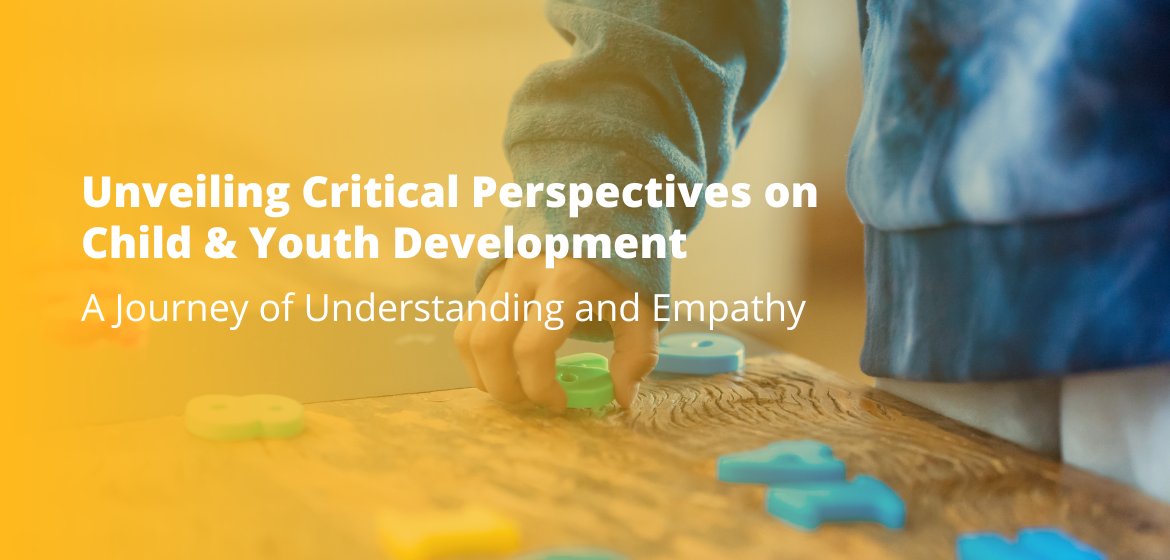
Unveiling Critical Perspectives on Child & Youth Development
Child and youth development is a complex and multifaceted journey that shapes individuals’ lives profoundly. From infancy to adolescence, every experience, interaction, and environment contributes to their growth and well-being. However, understanding this process requires more than just surface-level observation. It demands a deeper exploration of critical perspectives that unveil the intricate dynamics at play. By delving into these perspectives, we not only gain insights into the challenges faced by children and youth but also foster empathy and informed action to support their development effectively.
Critical Perspectives
There are some key elements to take into account focusing on these parts of child and youth development:
- Socioeconomic Factors: One of the critical lenses through which child and youth development can be understood is socioeconomic status. Research consistently shows that poverty and inequality significantly impact children’s access to resources, opportunities, and support systems essential for their growth. Economic instability can lead to stressors such as food insecurity, inadequate housing, and limited educational prospects, all of which can hinder developmental outcomes. Understanding these socioeconomic disparities is crucial for designing interventions and policies aimed at levelling the playing field for all children.
- Cultural and Ethnic Diversity: Another vital aspect of child and youth development is recognising the influence of cultural and ethnic backgrounds. Different cultural norms, values, and traditions shape how children perceive themselves, others, and the world around them. Moreover, navigating multiple cultural identities can pose unique challenges, especially in societies characterized by diversity. By embracing cultural sensitivity and inclusivity, we can create environments that celebrate diversity and promote the healthy development of all children, regardless of their cultural background.
- Trauma and Adversity: Unfortunately, many children and youth face adverse experiences such as abuse, neglect, or exposure to violence, which can have profound and lasting effects on their development. Trauma alters brain development, disrupts emotional regulation, and undermines social relationships, making it crucial to recognize and address trauma-informed approaches to support healing and resilience. Understanding the impact of trauma on child development empowers caregivers, educators, and policymakers to provide trauma-sensitive interventions and create safe spaces where healing can occur.
- Intersectionality: Child and youth development intersects with various aspects of identity, including gender, sexuality, race, and disability. Recognising these intersecting identities is essential for understanding the unique experiences and challenges faced by individuals who navigate multiple marginalized identities. By acknowledging the complexities of intersectionality, we can address systemic inequalities and promote social justice in ways that recognize and uplift the voices of marginalized communities.
Gaining an Understanding of Child & Youth Development
Understanding critical perspectives on child and youth development requires a nuanced and holistic approach which considers the interconnectedness of various factors shaping individuals’ lives. By delving into socioeconomic disparities, cultural diversity, trauma and adversity and intersectionality, we gain a deeper understanding of the challenges and opportunities inherent in supporting children and youth. Armed with this knowledge, we can cultivate empathy, advocate for equity, and implement effective interventions that nurture the potential of every child and youth.
If you’re passionate about understanding and supporting child and youth development from a critical perspective, consider exploring the range of courses we have on offer. These courses often delve into the complex intersections between addiction, trauma, and developmental outcomes, providing valuable insights for those committed to making a difference in the lives of children and youth.






















